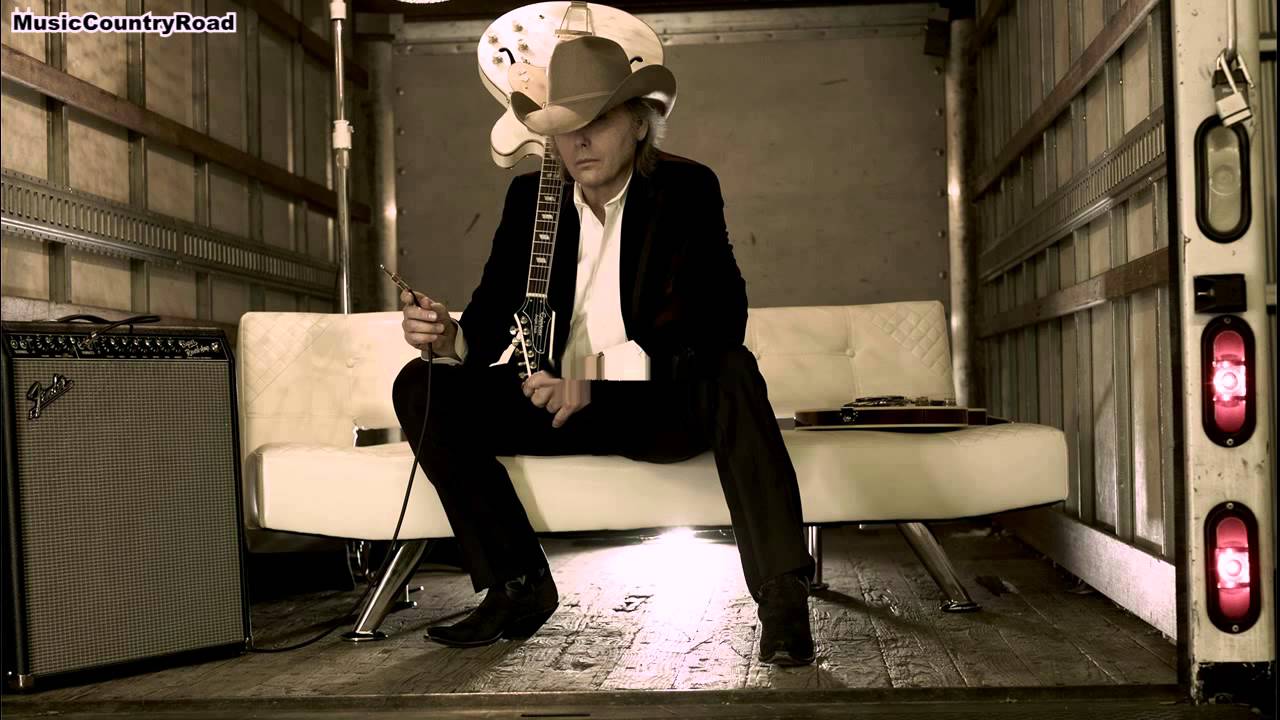
A bright twang that forgives but never forgets — “Little Ways” turns small betrayals into a clear-eyed, steady walk forward
At its first release in June 1987, “Little Ways” — written and sung by Dwight Yoakam — climbed to No. 8 on the Billboard Hot Country Songs chart in the U.S. and reached No. 1 on Canada’s RPM Country singles chart. It arrived as the second single from his sophomore album Hillbilly Deluxe and carried a wry B-side, “Readin’, Rightin’, Rt. 23.” Produced by Pete Anderson for Reprise, the track runs a tight 3:18, all honky-tonk snap and Bakersfield shine, with Yoakam’s name on the writing credit.
Those statistics tell you it landed; the music tells you why. “Little Ways” doesn’t thunder or plead. It moves with a confident, lightly swinging stride — the rhythm of a person who has measured the distance between what was promised and what was delivered, and decided not to beg for better. From the opening elongated vowel in Yoakam’s first line — a sly tip of the hat to Buck Owens — the song wears its California honky-tonk lineage proudly: bright Telecaster, dry drum crack, pedal-steel commentary that smiles even when the lyric flinches. On Hillbilly Deluxe — a set that would become Yoakam’s second consecutive No. 1 on the country albums chart — “Little Ways” announced itself as the album’s credo: classic forms, modern nerve, no wasted motion.
The story here is simple and human. A lover’s “little ways” — excuses, evasions, the ordinary erosion of trust — have added up. Not to a door-slamming scene, but to a quiet verdict. Yoakam’s vocal is the key: high, cool, slightly pinched at the edges, he sounds like a man who has already done his grieving and now speaks only to mark the boundary. That’s the genius of the performance — its refusal to grandstand. The band keeps everything unadorned; the twang doesn’t sting so much as it clarifies. You can tap your foot to it while the truth — unsentimental, almost kindly — steps into focus.
Part of the pleasure, especially for listeners who remember these records as new, is hearing a tradition made present tense. In 1987, country radio was awash in big choruses and soft edges; Yoakam turned up with Bakersfield angles and a songwriter’s spine. “Little Ways” carries the old dance-floor electricity, but the lyric is pure late-night kitchen table: a list of small trespasses said without venom. You can feel producer Pete Anderson acting like a master furniture maker — sanding every surface until the song sits right in the room, sturdy and graceful. The guitars don’t crowd; the beat leans forward; the melody turns on simple phrases that feel like things you’ve said yourself, only neater.
What does it mean, beneath the gloss? That most heartbreak doesn’t arrive with violins; it arrives as a dozen little drafts under the door. This song teaches that lesson without scolding. It’s about reclaiming ordinary days, about not mistaking habit for love. When the chorus lands, you don’t hear revenge; you hear a decision. That’s why older ears warm to it. There is mercy in the tempo — a lift that keeps the chest from collapsing — and there is dignity in the language. It’s the sound of learning to leave before you forget who you are.
Placed in the arc of Dwight Yoakam’s rise, “Little Ways” also marks the point where his revival of West-Coast honky-tonk stopped being a novelty and became a standard. Hillbilly Deluxe (released July 7, 1987) opened with this cut, then rolled through a run of Top-10 singles, proof that the sharp edges could thrive beside the radio’s soft focus. But even if you stripped away the chart lines and release dates, you’d still hear why it endures: the groove is clean as a kitchen floor at dawn, the hook is light in the hand, and the vocal keeps its pride without hardening into pridefulness.
There are small, telling details longtime listeners savor. The way the guitar lick echoes the shape of the chorus, as if the instrument is nodding along to the decision just made. The pedal steel’s brief sighs, which never tip the mood toward self-pity. Even the B-side title feels like a wink toward the old home places that populate Yoakam’s writing, a reminder that leaving with grace doesn’t mean severing the past.
Play “Little Ways” today and it brings back a particular light — neon on a diner window, an August evening somewhere on the 101, the kind of night when you can hear your own thoughts clearly for the first time in months. The record doesn’t demand you sing along, but you will; and somewhere around the last chorus, you might feel a gentle untangling, the way a knot loosens when you stop pulling. That is the song’s quiet gift. It doesn’t rage, it doesn’t plead; it simply stands, a clear-eyed country tune that treats your heart like a trustworthy witness.
And when the needle lifts, what remains is not bitterness but space — the room you win back when you start believing your own sentences again. “Little Ways” gave that room to a lot of us the summer of ’87. It keeps giving it now. Because some songs don’t age; they settle — right where you need them, honest as daylight, steady as steps taken in your own direction.